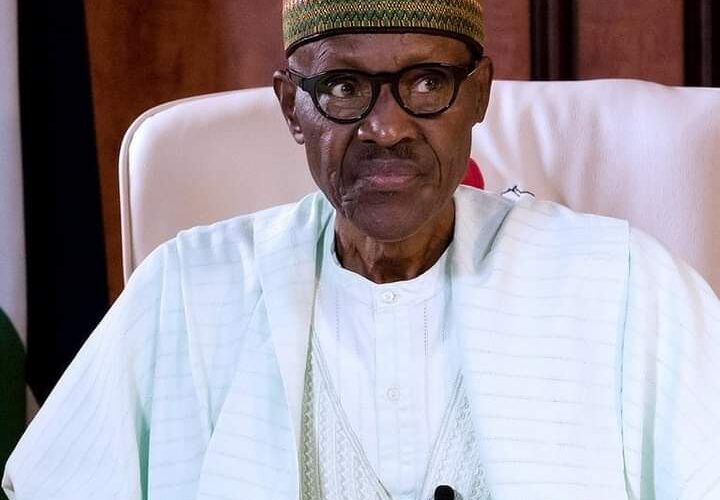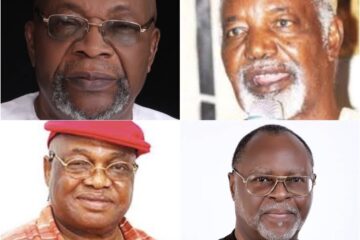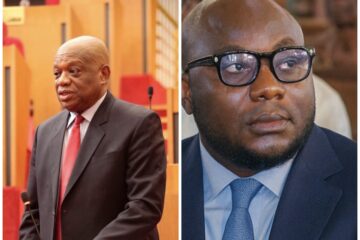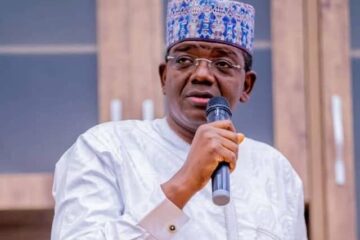In 2015, a day before the election that brought President Buhari to office, I made a last-ditch effort to warn Nigerians about the impending doom of electing a man whose leadership credentials were uninspiring and laden with evidence of failure. I published “The Death of the African Big Man” on March 28, 2015, Presidential elections. The article generated virulent attacks from the All Progressives Congress (APC) mob, whose major defining quality was an inability to reason. In the article, I argued that Gen. Buhari did not possess the acumen, intellect, energy, and managerial capacity to run the modern, large, and complex enterprise that Nigeria had become. In the 2015 article, I wrote the following words:
“Dictators in general, and Buhari in particular, clearly lack the economic acumen and qualities of leadership that spurs growth, development, and prosperity for the Nigerian people.”
“What evidence do we have that he will be a positive force for Nigeria? Many see only evidence to the contrary and an abundance of it.”
“During the 16 years of military rule (from 1983 to 1999), GDP per capita actually dropped from $444 to $299 (under Buhari’s disastrous economic management, in particular, we saw it drop from $444 to $344 in 18 months!). During PDP’s democratic rule, from 1999-2014, we’ve seen the GDP rise exponentially – from $299, where the dictators left it, to $3,005.”
These words attracted umbrage from the social media mob, mobilised to hound President Jonathan out of office and enthrone Nigeria’s most clueless and incompetent President. Most of my friends and benefactors rallied behind President Buhari; some reached out to me and argued that I should soft pedal and jump ship. Some others took offence and held grudges against me that have lasted to this day. The vicious and visceral attack on me after the article did not deter my conviction that Gen Buhari would be an unmitigated disaster for Nigeria. Even then, I could not imagine this proportion of failure. I am happy that my friends who supported President Buhari now hide their heads in shame or have become bitter critics.
I was not here during the Nigeria–Biafra civil war, but discussions with those present and review of written accounts point to the glaring fact that Nigeria was safer, more united, and more prosperous than under President Buhari. Many on the Nigerian side travelled freely from Lagos to Kaduna by road and rail, schools were open, farmers cultivated their farms without fear, and the economy was stable without massive devaluation of currency or galloping inflation.
Even in Biafra, where the war took its toll and created unprecedented misery, the people were safe except for the ruthless air raids and the blockade-instigated starvation. They were safe from kidnapping and marauding invaders in their farmlands and spared the tragedy of an incompetent state. They refined their oil, maintained their currency, serviced their equipment, and built armaments that kept the war efforts alive for over three years. At that time, soldiers who surrendered were treated with dignity, and the war ended with a sense of brothers reunited. Compared to President Buhari’s Nigeria, the gruesome war period was a safer and more united period.
As President Buhari leaves office tomorrow, he bequeaths to Nigerians a dysfunctional country. The civil service, security agencies, and the entire governance institutions are at their most incompetent and ethnically divided zenith. For a man with pro-people pretensions, it is scandalous that no merit-based recruitment took place in the past eight years. The Buhari government filled the key and rich government parastatals with the sons and daughters of regime members and friends.
The National Assembly should conduct a hearing and release the names of recruits and state of origin in the past eight years across all Ministries, Departments, and Agencies. Even an occupying enemy force would have dealt more mercifully with Nigerians.
President Buhari’s nativist and corrupt government must be dismantled, and new laws passed to give teeth to the provisions of national agreements like the federal character principle and due process in government contracting. Under President Buhari, the Bureau for Public Procurement became a comatose and ineffectual organisation leading to massive looting of public funds through an opaque contracting process.
President Buhari destroyed every fibre of our national consensus, destroyed our pride of place in the comity of nations, damaged our collective desire to live in peace within our diversity, and reversed the economic progress of the democratic era. President Buhari was simply a disaster of unimaginable proportions.
In 2019, I published the sequel to the 2015 essay. The fifth paragraph of “The Death of the African Big Man II” read:
“On the economy, only a liar would claim that Nigeria’s economy has fared well under Buhari. His gross inability to understand basic economics is epic and uncommon. How can one explain that every time Buhari touches Nigeria’s economy it turns to dust? This anti-Midas touch was in full effect from 1983 to 1985 and again from 2015 to date. The economy Buhari inherited in 2015 had been growing at an average of 7 percent for over a decade. It was globally acclaimed as part of the MINT countries, a club of emerging global economic giants. Yet, in less than one year, Buhari mismanaged the economy into a recession as he did in 1983.”
President Buhari’s anti-Midas touch is now in full effect. He touched Nigeria’s economy and turned it to dust, just as he did as a Military Dictator. As of 2014, Nigeria’s Gross Domestic Product (GDP) per capita was $3,021. Today, after a consistent decline over the past eight years, our GDP per capita stands at $2,066 as of early 2022.
President Buhari would be remembered as the worst ruler Nigeria ever had. He is a man who represented nothing, inspired division, reversed Nigeria’s march to progress and nationhood, destroyed our economic potential, oversaw the demise of our security architecture through unmasked ethnicity, worked hard to reduce Nigerians to their primordial ethnic instincts, and instilled a culture of mediocrity in our country. He squandered his charismatic appeal and national trust due to his inability to rise above his nativist instincts.
Thankfully, his nativist Congress for Progressive Change (CPC) wing of the APC has gone down with him. His incompetence ensured that his cronies did not make it to Government Houses in the northern region and are not in the commanding height of the Party. The CPC wing leaves the government without footing in the Party or the new government. They left no legacy, or philosophical or moral precepts for which they will be remembered. They, like their leader, Buhari, will be soon forgotten. I hope they will, at the very least, remember to share with their deceived base some of the billions of Naira they are leaving office with.
As Senator Bola Ahmed Tinubu takes the oath of office tomorrow, most Nigerians are worried about the prospects of a future with his unpopular mandate of 37 percent of the voters. To make Nigerians cut him some slack, he needs to repudiate the tragic government of President Buhari and begin the march to reunite Nigeria and turn the ship of the nation back to the path of modernity. Halting the “JAPA” movement and creating opportunities for Nigerian youths is a task the new administration must prioritise to reverse the damage to our national competitiveness that occurred in the past eight years due to a massive brain drain.
I believe in Nigeria’s ability to, like the Phoenix, rise from the ashes and soar. I am an Afro Optimist who believes that, although we faltered for a period, we can (and will) cover the lost ground under purposeful leadership.
We must make President Buhari a tiny footnote and an inconsequential part of our destiny as the home of the black race. As a nation, we must remind ourselves never to allow such a level of incompetence and nativist deviousness to get close to public office.
Nigeria will rise again. We will rebuild what the cankerworm has destroyed. We will say a collective, “Never again.”
Osita Chidoka
May 28, 2023




